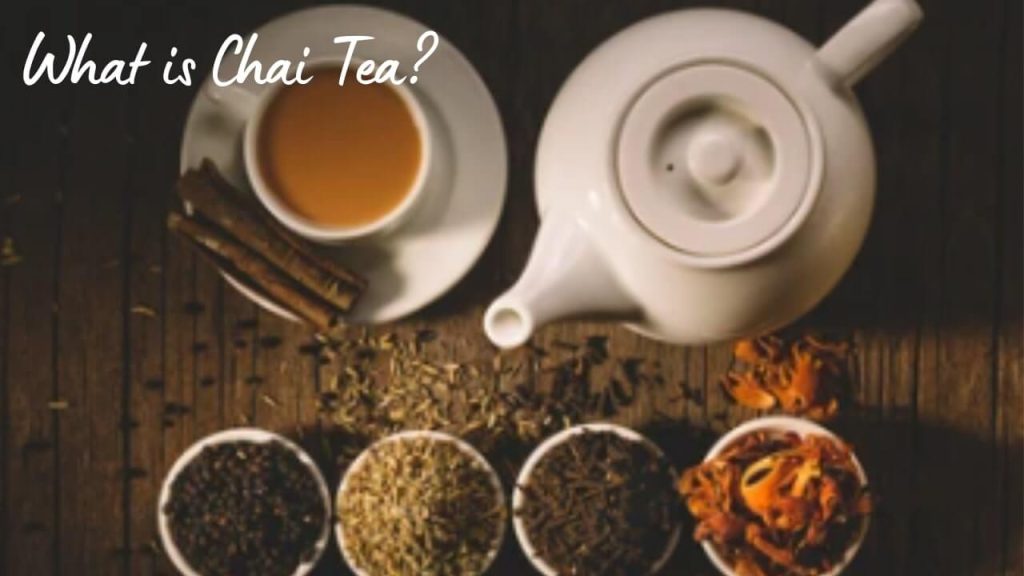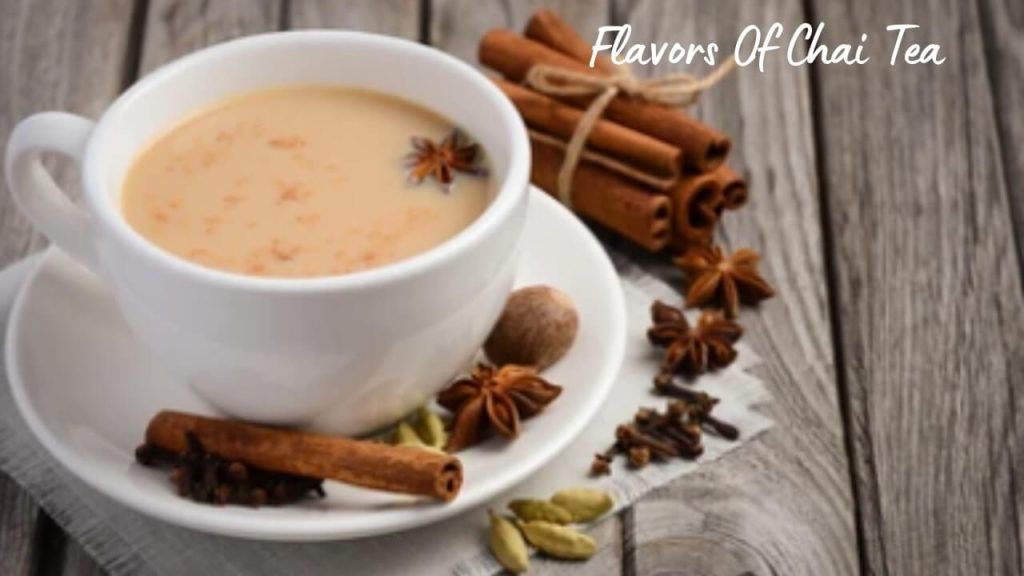Contents
- 1 Does Chai Tea Have Caffeine? An In-Depth Look!
- 1.1 What is Chai Tea?
- 1.2 Ingredients in Chai tea:
- 1.3 Most popular flavors Of Chai Tea:
- 1.4 Does Chai Tea Have Caffeine?
- 1.5 Does Chai Tea Lattes Have Caffeine?
- 1.6 How Much Caffeine is in Chai Tea?
- 1.7 What Affects Caffeine Levels in Chai Tea?
- 1.8 Caffeine Levels In Chai Tea And Other Beverages:
- 1.9 Health Benefits of Chai Tea:
- 1.10 How to Make Chai Tea at Home? Step-by-step Guide:
- 1.11 FAQs: Does Chai Tea Have Caffeine?
- 1.11.1 Q: Are there any other ways to incorporate chai tea into recipes?
- 1.11.2 Q: Does vanilla chai tea have caffeine?
- 1.11.3 Q: Does Twinings Chai tea have caffeine?
- 1.11.4 Q: Does black chai tea have caffeine?
- 1.11.5 Q: Does iced chai tea latte have caffeine?
- 1.11.6 Q: How many calories are in a chai latte?
- 1.11.7 Q: Is chai tea healthy?
- 1.11.8 Q: Is chai tea better, hot or cold?
- 1.11.9 Q: Does tazo chai tea have caffeine?
- 1.11.10 Q: Will chai tea keep you awake?
- 1.11.11 Q: Is chai tea better for you than coffee?
- 1.11.12 Q: How long should chai tea be steeped?
- 1.11.13 Q: Is it OK to drink chai tea before bed?
- 1.11.14 Q: Does chai tea burn belly fat?
- 1.11.15 Q: Is it OK to drink chai every day?
- 1.11.16 Q: What is the best time of day to drink chai tea?
- 1.11.17 Q: What is the best way to store chai tea?
- 1.11.18 Q: Is chai tea vegan-friendly?
- 1.11.19 Q: What are the side effects of chai tea?
- 1.11.20 Q: Can I make my Chai tea at home?
- 1.11.21 Q: Can I drink chai tea while pregnant?
- 1.11.22 Q: Can you get caffeine-free Chai?
- 1.11.23 Q: What is the difference between chai tea and masala chai?
- 1.11.24 Q: What temperature should I drink my chai tea?
- 1.11.25 Q: Does chai tea have a lot of sugar?
- 1.12 Conclusion: Does Chai Tea Have Caffeine?
- 2
- 3 Top 15 Keto Snacks for Christmas You'll Absolutely Love
- 4 How Long Does Espresso Last? Expert Storage Tips
- 5 How to Make Coffee Yogurt: A Comprehensive Guide
- 6 How Much Caffeine in Coffee? Your Ultimate Guide
Does Chai Tea Have Caffeine? An In-Depth Look!
Are you a fan of hot drinks? It’s cold outside, and it may seem like all warm beverages are the perfect remedy. But before reaching for that Chai Tea, have you ever wondered: Does Chai Tea Have Caffeine? If so, how much and what other ingredients make up this popular drink?
In this blog post, we will explore these questions to help readers better understand what’s in their cup when they enjoy a delicious mug of chai tea!
What is Chai Tea?

Chai tea originated in India and is made by brewing black tea, various spices, herbs, milk, and sugar for a unique and flavorful taste. The combination of spices used in Chai tea includes cinnamon, ginger, cardamom, cloves, and pepper, resulting in a perfect balance of sweet and spicy notes.
Chai tea is commonly consumed for its many health benefits, which include improved digestion, immune system boost, and reduced inflammation.
Ingredients in Chai tea:
The main ingredients in chai tea are black tea, spices, and herbs. Other ingredients that could be added include milk, cream, sugar, or honey to sweeten the flavor.
Black Tea:
Chai tea is traditionally made with black tea, which is a type of tea that is produced from the Camellia sinensis plant. The leaves are oxidized, which gives them their characteristic dark color and flavor. Black tea contains caffeine and is known for its energizing effects.
Spices:
Chai tea typically contains a variety of spices, such as cardamom, cinnamon, ginger, cloves, and black pepper. These spices give chai its unique flavor and aroma and provide health benefits such as aiding digestion and boosting immunity.
Milk:
Chai tea is often made with milk, which adds creaminess to the drink and helps to balance out the spiciness of the other ingredients. Milk also provides protein, calcium, and other nutrients that can help keep you healthy.
Sweetener:
We add Sweeteners in chai tea, such as honey or sugar, to balance out the flavors of the spices and black tea. Adding a sweetener can also make chai more enjoyable by making it more palatable for those who don’t like strong flavors or bitter tastes.
Water:
Water is an essential ingredient in any recipe for chai tea as it helps to bring all of the ingredients together into one cohesive beverage. Without water, all the other components would be unable to combine properly, and you wouldn’t have a delicious cup of chai!
Most popular flavors Of Chai Tea:

Many varieties of chai tea are available, including masala chai, turmeric chai, and ginger chai. Each type uses a unique blend of spices to create its flavor profile that will surely please any palate! Here are some of the most popular flavors of Chai Tea you can try now!
Vanilla Chai Tea
Vanilla Chai Tea is one of the most popular flavors of chai tea available. This flavor combines chai’s traditional spices with vanilla’s sweetness for a unique and delicious taste. Vanilla Chai Tea is perfect for those who enjoy a sweet and spicy beverage, as it provides the right balance.
Spiced Chai Tea
Spiced Chai Tea is another popular flavor that combines traditional spices such as cinnamon, cardamom, and ginger with black tea leaves. This flavor provides a strong and spicy taste that many enjoy, especially during the colder months when they want something to warm them up.
Masala Chai Tea
Masala Chai Tea is a popular Indian-style chai tea that has become increasingly popular recently. This flavor combines black tea leaves with traditional Indian spices such as cardamom, cinnamon, cloves, and ginger for a unique and flavorful beverage. It is often served hot or cold, depending on preference.
Green Chai Tea
Green Chai Tea combines green tea leaves with traditional chai spices such as cardamom, cinnamon, cloves, and ginger. This flavor provides a slightly lighter taste than other types of chai tea while still providing all the benefits associated with green tea, such as increased energy levels and improved digestion.
Honey Chai Tea
Honey Chai Tea combines black tea leaves with honey to create a sweet yet spicy beverage that can be enjoyed either hot or cold, depending on preference. Mixing honey and traditional chai spices creates a unique flavor that many people find irresistible!
Rooibos Chai Tea
Rooibos Chai Tea is made from rooibos (red bush) tea combined with traditional chai spices such as cardamom, cinnamon, cloves, and ginger for a unique flavor profile, unlike any other type of chai tea. This chai flavor provides a more mellow taste and is often served cold or at room temperature for a refreshing beverage.
Turmeric Chai Tea:
Turmeric chai tea is made by blending turmeric root with classic spices used in traditional blends (cinnamon, cardamom, etc.). Adding turmeric gives this type of chai a unique earthy flavor while providing numerous health benefits, such as reduced inflammation and improved cognitive function.
Does Chai Tea Have Caffeine?

Yes, chai tea does contain caffeine. The amount of caffeine varies depending on how long the leaves are steeped and the quality of the leaves used. Generally, chai tea contains about one-third of the caffeine as regular coffee. If you prefer a less caffeinated beverage, then chai tea is a great option!
Does Chai Tea Lattes Have Caffeine?
A chai tea latte is a delightful fusion of tea and milk. The classic recipe features black tea and hot milk (any variety will do). Still, this exquisite beverage has numerous variations, offering a range of toppings and spices to tantalize your taste buds.
So yes, Chai Tea Latte contains caffeine. The amount of caffeine in a chai latte depends on the type of concentrate used and how much is added. Generally, 8fl.oz Chai tea lattes at Starbucks contain 50 mg, less caffeine than regular coffee or espresso drinks.
How Much Caffeine is in Chai Tea?
The caffeine content in chai tea can differ based on various factors, such as the type and quality of leaves used, as well as the duration of steeping. Generally, a cup of 8fl.oz chai tea contains around 30-60 milligrams of caffeine. This amount is adequate to provide a gentle boost without overwhelming your senses.
What Affects Caffeine Levels in Chai Tea?
The caffeine content of chai tea is affected by several factors.
Type of Tea:
The type of tea used in chai tea can significantly impact the caffeine levels. Generally, black tea has the highest caffeine content, followed by oolong and green teas, with white teas having the least caffeine. If you’re looking for a chai tea with more or less caffeine, you should choose your tea accordingly.
Steeping Time:
The time your chai tea steeps also affects its caffeine content. The longer your tea steeps, the more caffeine will be released into the cup. For example, if you steep a cup of black tea for five minutes, it will contain more caffeine than a cup steeped for two minutes.
Brewing Method:
The brewing method can also affect the amount of caffeine in your Chai tea. For example, using a French press or an espresso machine to make your chai will produce more caffeine than using a regular teapot or infuser. This is because these methods extract more flavor and caffeine from the leaves.
Amount of Tea Used:
The amount of tea used when making chai can also affect its caffeine content. Generally speaking, using more leaves will result in higher levels of caffeine than using fewer leaves. Therefore, if you’re looking for a stronger cup of Chai with higher levels of caffeine, you should use more leaves when brewing it.
Milk Content:
Adding milk to your Chai can also affect its overall level of caffeine since milk contains proteins that bind to and reduce the amount available in the beverage itself. If you prefer to drink your Chai with milk but want to reduce their level of caffeine, consider reducing or eliminating milk from the recipe itself!
Water Temperature:
Using too hot water when preparing your teas can result in over-extraction, which releases too much tannin into them, thus increasing their overall caffeination, whereas water that is too cold results in under-extraction, which reduces it instead! So try experimenting with different temperatures until you find one that produces the right balance between flavor and caffeination!
Caffeine Levels In Chai Tea And Other Beverages:
For comparison, a cup of coffee typically contains about 95-200 milligrams of caffeine, while the average energy drink can contain up to 110 milligrams. Thus, Chai Tea is generally on the lower end of the spectrum regarding caffeination.
Caffeine in Chai Tea & Coffee:
Chai tea and coffee contain caffeine, but caffeine in each beverage varies significantly. A cup of brewed coffee typically contains 91 milligrams of caffeine per 8 fl.oz., while chai tea contains 30-60 milligrams. For those looking for a caffeinated beverage with a bit less kick than coffee, chai tea is a great option.
Caffeine in Chai Tea & Green Tea:
Chai and green tea come from the same plant but differ significantly in caffeine content. Green tea typically contains 30-50 milligrams of caffeine per 8 fl.oz., while chai tea generally has around 30- 60 milligrams. As such, those looking for a slightly more caffeinated beverage may prefer chai over green tea.
The flavor profiles of these two types of teas also differ significantly. Chai tea typically has a bold, spicy profile due to the inclusion of cardamom, cinnamon, clove, and sometimes ginger. In contrast, green tea is usually more mellow with grassy or vegetal notes.
Caffeine in Chai Tea & Black Tea:
The amount of caffeine in each beverage also differs significantly. A cup of 8 fl. oz of Black tea typically contains 47 milligrams of caffeine, while a cup of Chai tea can contain up to 60 milligrams depending on the brewing method and length of steeping time.
Chai tea generally contains spices such as cardamom, cinnamon, clove, and sometimes ginger, while traditional black teas are plain in flavor profile.
Therefore, those seeking a more caffeinated beverage may prefer chai over black tea.
Health Benefits of Chai Tea:
Chai tea is not only delicious but also provides several health benefits.
Heart Health Benefits
The antioxidants in Chai Tea may also benefit your heart health by reducing harmful cholesterol levels and improving circulation throughout your body.
The polyphenols found in chai tea can bind with cholesterol particles and prevent them from being absorbed into your bloodstream; this reduces your overall cholesterol levels and improves blood flow throughout your body.
Chai tea contains catechins, another antioxidant linked to improved brain function and reduced cancer risk.
Boosts Immunity
Drinking Chai Tea may also boost your immune system. Chai tea is high in vitamin C, essential for maintaining a healthy immune system. Some of the spices used in chai tea, such as ginger and cinnamon, have anti-inflammatory properties that can help to reduce inflammation and fight off infection.
Improves Digestion
Chai tea may also help to improve digestion by stimulating the production of digestive enzymes. The spices used in chai tea can help to stimulate the production of stomach acid, which helps to break down food more efficiently. Chai tea’s caffeine helps stimulate peristalsis, which is how food moves through the digestive tract.
Reduces Stress
Chai tea has also been shown to reduce stress levels due to its calming effects on the body and mind. The caffeine in chai tea helps to increase alertness while calming the nervous system. And some of the spices used in chai tea have calming properties that can help you relax and unwind after a stressful day.
Promotes Weight Loss
Drinking chai tea may also promote weight loss due to its thermogenic properties. Thermogenesis is a process by which your body burns calories to generate heat energy, which can help you burn more calories throughout the day even when you’re not exercising or dieting strictly.
Some studies suggest drinking black or green teas with caffeine may increase fat burning during exercise and resting metabolism throughout the day.
Prevents Cancer
The antioxidants found in chai tea have also been linked with cancer prevention due to their ability to reduce free radical damage within cells and tissues; this damage can lead to cell mutations that can lead to cancerous growth over time.
Natural Energy Booster
Chai Tea is an excellent natural energy booster because it combines caffeine and other compounds; these compounds act together synergistically, providing sustained energy without causing jitters or other negative side effects associated with artificial energy drinks.
How to Make Chai Tea at Home? Step-by-step Guide:

Let’s embark on a flavor-packed journey to create a delightful Chai tea without a milk cup. Begin by heating a few cups of water in a teapot or pan and gracefully infusing it with Black tea leaves. As the mesmerizing hues emerge, introduce a few shreds of peeled and crushed ginger, along with 3 to 4 crushed cardamom pods.
If your adventurous spirit desires, sprinkle a pinch of turmeric (optional), 3 to 4 black peppercorns, 4 to 5 cloves, and a broken cinnamon stick for a tantalizing aroma. Let this exquisite blend simmer and meld its flavors for a few minutes (or steep it if you prefer).
With anticipation in the air, strain the mixture and add honey or sugar to your taste. For an elegant twist, squeeze in a lemon wedge to take the taste experience to new heights.
However, should you yearn for the creamy touch of milk in your Chai tea, simply incorporate your desired amount of milk after heating the water, continuing with the enchanting ritual of adding the Black tea leaves. Fear not. The rest of the recipe remains an impeccable tribute to the art of Chai tea making, as mentioned above.
Chai tea is a delicious and versatile beverage that can be enjoyed hot or cold, with or without sweeteners, and customized to fit your taste.
You can also get creative with your chai tea recipes by adding flavors and ingredients, such as honey, mint leaves, or dried fruits. No rules exist when making Chai tea; you can tailor it to suit your taste preferences.
You can add a scoop of coconut or almond milk instead of regular cow’s milk for a rich and creamy chai tea.
Substitute the black tea with green or white tea for a lighter flavor.
You can also incorporate chai tea into other recipes, such as smoothies, muffins, oatmeal, and more for an added health boost. Just be sure not to overheat the tea when adding it to recipes, which can lead to a bitter taste.
You may like to read:
FAQs: Does Chai Tea Have Caffeine?
Q: Are there any other ways to incorporate chai tea into recipes?
A: Yes! You can enjoy the traditional beverage version of chai tea and incorporate it into recipes such as smoothies, muffins, oatmeal, and more.
Be sure not to overheat the tea when adding to recipes, leading to a bitter taste. You can even use chai tea as a marinade for meats or vegetables! The possibilities are endless!
Q: Does vanilla chai tea have caffeine?
A: Yes. Vanilla chai tea usually contains black tea, a caffeine source. Be sure to check the packaging for exact amounts if you have any concerns about your caffeine intake.
Q: Does Twinings Chai tea have caffeine?
A: Yes, Twinings Chai Tea contains black tea, a caffeine source. You can also opt for decaf Chai tea to reduce your caffeine intake.
Q: Does black chai tea have caffeine?
A: Black Chai tea contains caffeine because it is prepared from black tea leaves. The caffeine content in black chai tea can differ based on steeping duration and brew strength.
Q: Does iced chai tea latte have caffeine?
A: Yes, an iced chai tea latte usually contains black tea, a caffeine source. Depending on the recipe and its steep length, an iced chai tea latte can contain up to 60 mg of caffeine per cup.
Q: How many calories are in a chai latte?
A: A typical 8-oz homemade chai latte with nonfat milk contains around 120 calories. This number can vary depending on the amount of sweetener and other ingredients used.
For a more nutritious drink, try low-fat or skim milk instead of full-fat and reduce the added sweeteners. Additionally, you can opt for decaf chai tea to reduce your calorie intake further.
Q: Is chai tea healthy?
A: Yes! Chai tea is a nutritious, antioxidant-rich beverage that contains several health benefits. It can help boost energy levels, reduce stress and inflammation, and aid digestion.
Q: Is chai tea better, hot or cold?
A: Both! Chai tea can be enjoyed hot or cold, depending on your preference. Hot chai tea is perfect to enjoy during the colder months as it can help warm you up and provide a comforting feeling.
Cold chai tea is excellent during the summer months when you’re looking for a refreshing beverage to cool down.
Q: Does tazo chai tea have caffeine?
A: Yes, Tazo Chai Tea contains black tea, a caffeine source.
Q: Will chai tea keep you awake?
A: Chai tea can help keep you awake due to its caffeine content.
Q: Is chai tea better for you than coffee?
A: It depends. Both chai tea and coffee contain caffeine, which can help give you a boost of energy. However, chai tea also contains many beneficial spices that provide additional health benefits. Furthermore, some people find the taste of chai tea more enjoyable than coffee due to its unique flavor profile.
Q: How long should chai tea be steeped?
A: Generally, chai tea should be steeped for 3-5 minutes to achieve optimal flavor. The exact time will depend on the type of tea used, as well as personal preference. Try steeping the tea for 5 minutes or more for a stronger, bolder flavor. On the other hand, if you are looking for a lighter cup of tea, reduce the steep time to 2-3 minutes.
Q: Is it OK to drink chai tea before bed?
A: Consuming chai tea before bedtime is generally discouraged due to its caffeine content, which may disrupt sleep patterns.
Q: Does chai tea burn belly fat?
A: While chai tea may help support your weight loss journey with a healthy diet and regular exercise, it is not a magic slimming beverage.
Q: Is it OK to drink chai every day?
A: Yes, drinking Chai tea daily can benefit your health. However, it is important to remember that too much of anything can be harmful, and moderation is key. Check the caffeine content of each chai tea blend you drink and opt for decaf if necessary.
Q: What is the best time of day to drink chai tea?
A: The best time to enjoy Chai tea is in the morning or afternoon, as it contains caffeine that can boost your energy. Additionally, the spices used in chai tea are known for their anti-inflammatory properties, which can help you get energized and alert throughout the day.
Q: What is the best way to store chai tea?
A: To ensure your chai tea stays fresh and flavorful, it is important to store it correctly. Keep loose-leaf chai tea in an airtight container or bag away from heat and moisture.
Seal the packaging tightly for pre-packaged teabags and store it in a cool, dark place. For optimal freshness, use loose-leaf chai tea within six months of purchase or pre-packaged chai tea within one year.
Q: Is chai tea vegan-friendly?
A: Yes! Most chai tea blends are suitable for vegans as they do not contain any animal products. However, some pre-packaged chai teabags can contain animal products such as milk, so it is important to know what you are buying.
Q: What are the side effects of chai tea?
A: Although chai tea is generally safe for consumption, excessive intake can potentially result in side effects, including insomnia, restlessness, headaches, and anxiety. Moreover, if you have sensitivity or intolerance to any of its ingredients, the spices in chai tea may lead to digestive discomfort.
Q: Can I make my Chai tea at home?
A: Yes! Making your chai tea is a great way to enjoy a delicious cup of tea quickly and inexpensively.
Q: Can I drink chai tea while pregnant?
A: Generally, it is best to avoid drinking caffeine during pregnancy as it can lead to negative side effects such as increased heart rate and restlessness. However, if you drink chai tea while pregnant, opt for decaf and talk to your doctor first.
Q: Can you get caffeine-free Chai?
A: Yes! There are many varieties of caffeine-free chai tea to choose from. Try an herbal chai tea blend made with rooibos, spearmint, and ginger for those looking for a decaf option.
There are also naturally caffeine-free chai teas that use spices like cardamom, cloves, and cinnamon to create a flavorful blend. These are all great options if you are looking for a chai tea without the caffeine kick!
Q: What is the difference between chai tea and masala chai?
A: Chai tea and Masala chai are popular beverages originating in India. The main difference is that masala chai is traditionally made with cardamom, ginger, cinnamon, cloves, black pepper, and nutmeg.
Masala chai is often brewed with milk or cream, giving it a creamy texture. On the other hand, chai tea usually contains just black tea and spices without any dairy added. Both drinks are delicious options for enjoying a cozy cup of tea!
Q: What temperature should I drink my chai tea?
A: To best enjoy the flavors and aroma of your chai tea, it is essential to drink it at the right temperature. For hot drinks, ensure your chai cup isn’t too hot, as this can damage the delicate spices in the tea. Ideally, you should wait a few minutes after brewing before taking your first sip.
For iced chai tea, use cold or lukewarm water to steep the tea. This will ensure that your beverage won’t get watered down when adding ice.
Q: Does chai tea have a lot of sugar?
A: Generally, chai tea does not contain a lot of sugar. Most recipes do not require any additional sweeteners, as the spices in the tea give it a naturally sweet taste.
Conclusion: Does Chai Tea Have Caffeine?
Now, we know that Chai tea contains caffeine despite popular belief that it is a decaffeinated beverage. This might surprise some, but understanding how the two key ingredients of tea and spices interact can help us better understand the truth.
Chai tea offers many health benefits and can make a great alternative to coffee if you want an energizing boost in the morning or at night. Though it may not be completely free of caffeine, those sensitive to the effects of this substance should be mindful when consuming this traditional Indian drink.
Remember to share this informative post with your friends and family so more people become aware of chai tea’s properties and potential benefits for their bodies.
Related posts:

Hello, my name is Mary. I’m a passionate food and drink enthusiast, sharing flavorful recipes, creative drinks, and culinary inspiration from around the world. With a love for exploring new tastes and traditions, I bring a mix of easy-to-follow guides and expert tips to make every meal an adventure. Follow along for delicious discoveries and a toast to positive living!




